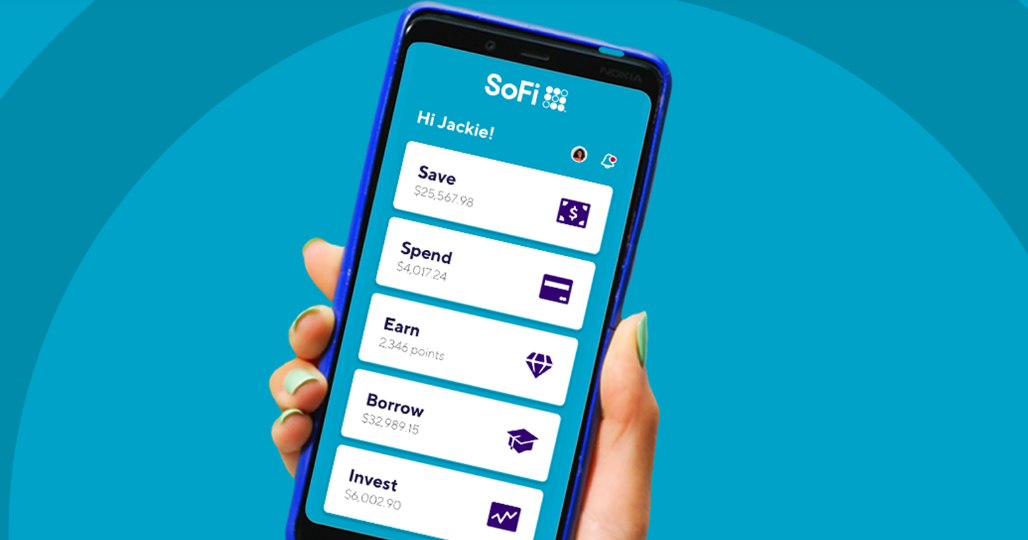The decision to initiate a Guidewire cloud migration should not be made lightly. Like any key decision in life, it is best to find experts, so not to incur potentially large expenditures in the future to fix a poor implementation. Between the financial investment, the large and potentially unknown risks, and the career implications determined by its success or failure, the stakes are very high. We inform and provide supportive leadership to C-suite decision-makers and stakeholders alike to what considerations and critical success factors should be top of mind when migrating to the Guidewire cloud platform (GWCP).
Highlights
- By migrating to a modern cloud-based architecture like Guidewire, P&C insurers can increase lowered IT management costs and operational efficiency, dramatically improve customer experiences, position brand ahead of competitors, and deliver financial and strategic goals.
- When Guidewire is not effecitvely implemented, there can be a high total cost of ownership (TCO) due to implementation missteps, incorrect utilization of Guidewire –which everyone wants to avoid.
- Experienced SI partners know P&C carriers have specific LOB (Line-of-Business) needs and understand the relationship between how to effectively implement Guidewire for varying LOBs that drive their organizational key metrics (DWP, Combined Ratio, Loss Ratio, etc.).
The ultimate guide to a successful Guidewire migration covers:
Benefits of Guidewire in the cloud
As with any cloud-based software, it’s much easier and faster to implement updates instead of using a manual upgrade process that take additional limited organizational resources and and additional time to manage. Guidewire cloud updates are seamless and immediate, while self-managed Guidewire software has features that may cause disparate compatibility issues. Instead of timely and tedious upgrades, GWCP allows Guidewire customers to start using these ongoing updates and features more quickly and more efficiently.
Guidewire also offers additional customer support for GWCP to help maintain and improve software performance over time. Migrating Guidewire to their GWCP provides reassurance and oversight to utilizing the software at its highest potential.
Recommendations to migrate Guidewire in the cloud
When preparing for a Guidewire cloud migration, it’s important to understand and determine best practices for a successful transition. Guidewire support can expedite a smooth migration by utilizing automated tools to review software code and ensure it’s prepared for the cloud. To avoid backend rebuilds, a system integrator (SI) partner can provide deep upgrade and migration experience to help facilitate the integrations and make sure your software is successfully integration, and optimized for cloud.
Guidewire’s cloud implementation process also includes test coverage that can run the code and have it working before it gets deployed. Future technical updates can then be managed by your SI partner, who will also provide additional expertise catered to your business needs.
Considerations for cloud migration
Experienced SI partners know P&C carriers have specific needs and understand the relationships they’ve built to migrate to the cloud. They’ll also have extensive experience with Guidewire upgrades, Guidewire Cloud implementations, and the necessary certifications for cloud expertise. Without this skill and experience, P&C carriers may feel overwhelmed by or uncertain about Guidewire, so it’s crucial to work with team members that know the ins and outs of the cloud migration process.
Also, when not implemented effectively, there’s a high total cost of ownership, increased maintenance, and ultimately doesn’t provide consistent user experience. Quality will suffer, defects will occur, and the system will not do what you need it to do, causing manual workarounds just to get it working correctly.
In addition, Accenture’s ongoing investment in cloud services provides support and understanding of the cloud.
Prepare for a Guidewire cloud migration
To prepare for a Guidewire cloud migration, choose an SI partner who can help you through the process and determine success based on your business needs. They can also help you document your business roadmap for Guidewire’s applications. Your partner will resolve as many production defects as possible and ensure your integrations are ready for the cloud migration.
As you move forward with utilizing Guidewire in the cloud, your SI partner can help bring your business to the next level and ultimately boost your bottom line.
What every P&C carrier needs to effectively manage Guidewire TCO
In a rapidly changing and highly competitive landscape, it is critical for insurance carriers to adapt quickly—and utilizing technology that accelerates at the same rate is equally important. Delivering innovative solutions means successfully managing a robust, insurance platform via professionals with technical expertise.
You might be concerned about the upfront investment or the ongoing cost of Guidewire software for your carrier’s business. So, let’s breakdown the total cost of ownership (TCO) of Guidewire and cover how Guidewire’s commitment to innovation, customer engagement, and optimization of business operations affects your insurance company’s bottom line.
Guidewire post-implementation benefits
Understanding the benefits of Guidewire after the implementation process is crucial for all P&C carriers—they need to understand the impact on their business. For instance, if you have a Guidewire implementation, you can adapt to the market and utilize new insurance products quicker, helping with your total cost of ownership (TCO). This also allows P&C carriers to quickly adjust to a variety of market conditions, such as combating policy ratings and pricing or retaining customers while being flexible with offerings.
Along with post-implementation benefits, ongoing maintenance plays an important role when using Guidewire. Their engineering team is dedicated to continuously enhancing the software by growing and developing new features and functionality. With every new update or release, they adopt new features and frequently update the software to improve their customers’ experience. Rigorous checks are also incorporated to review the software code and design it for volume increases, which combats any performance issues along the way.
Guidewire’s impact on business operations
Investing in Guidewire provides a multitude of solutions for P&C carriers, including saving time and business costs. With each update, Guidewire offers tools and resources to help carriers manage their own environments either on-premises or in the cloud. Particularly, migrating Guidewire to the cloud allows for more flexibility and brings efficiency when updating. Also, their advanced product designers (APD) can quickly design and deploy new products and features, leading to improved effectiveness.
Guidewire compared to other technology
When P&C carriers decide to invest in Guidewire, they also gain access to the many perks Guidewire has to offer. From licensing, maintenance, and coding, to developing, customization, and defect management, Guidewire is the premier technology solution for P&C carriers.
Because of Guidewire’s offerings, partnering with an SI can help maximize the value of what you have and take advantage of their expertise. With Guidewire, customers can adapt their lines of business to the platform while aligning with Guidewire’s recommended customizations.
P&C carriers rely on Guidewire to help process policies and claims, set deductibles, and pay for maintenance and claims—all while taking advantage of business sales and opportunities.
Avoid post-implementation performance issues
Implementing a new core insurance system can be overwhelming for property and casualty carriers, especially while having to maintain business as usual. Unexpected performance issues that arise during—or after—a digital transformation can have a serious impact on an insurer’s bottom line. Luckily, organizations with a proactive implementation team can avoid common performance issues from the onset by identifying and understanding the standards for success.
When you work with a Guidewire implementation partner, you will get the added benefit of built-in performance optimization from day one—inclusive of solutions that will scale and perform as your core systems’ data grows.
Understanding common causes of post-implementation performance issues
Even after you’ve implemented a major change and onboarded everyone into your new Guidewire system, your users may be confronted with additional challenges over time. As your transactional data grows, it is possible that your end users start to experience longer response times for routine actions. These longer response times eventually start to eat into the promised efficiency gains you intended to get from the initial transformation. Fortunately, a proactive implementation partner will be able to address the cause of these performance issues before they occur, relieving your organization of a frustrating experience and added user support costs later on.
If your organization is looking to improve your Guidewire system’s performance, or if you’re preparing to embark on a core system transformation, it’s vital that your team understands and recognizes the common causes of many post-implementation performance challenges:
- Database queries:
Inefficient queries are often a major cause of performance degradation. To avoid delays and optimize the core system, queries and databases should be customized for the exact needs of your organization. - Integrations:
Integrations can help automate your organization’s processes for maximum efficiency. When done poorly, integrations can cause or magnify performance issues that create more work for your users. - Search:
Guidewire provides extensive search capabilities and functionality. When search results are not relevant, it will take longer to get the intended results, further cutting into your organization’s time and resources. - Data model:
Data model configuration includes setting up data model extensions and their relationships. When those models are not set up correctly, query times can lag. To ensure performance is not adversely affected and avoid upgrade issues, it’s important to follow Guidewire best practices during configuration. - UI configuration:
Users being able to find what they need, when they need it is the greatest driver of performance. When the user interface (UI) is not intuitive, processes become less efficient and more time is needed for training purposes. UI configuration includes setting up widgets on new or existing UI screens. The business logic associated with the UI screen can also be customized. A trusted partner follows the best practices and architecture guidance for all UI-related configuration and coding. - Business rules:
Guidewire supports an advance business rules framework, allowing you to configure complex business logic. Guidewire also has numerous user-friendly rules frameworks, which require little coding to set up, giving you the ability to distribute access and responsibility to different users within your organization. These can be managed by your in-house users directly from the UI at run time, reducing your organization’s need for ongoing vendor support.
Getting your core systems implementation right the first time
While implementing a new core system can already feel like an uphill battle, the added pressure of maintaining business as usual while working through a full digital transformation might tempt you to rush through the testing stages—but having ample time for thorough testing is one of the most valuable steps in an agile implementation. Organizations that set reasonable deadlines and budget extra time for testing will spend far less time in the maintenance stage later on. Testing your software early and often is a surefire way to avoid performance issues from sneaking up on your team and derailing efficiency.
Additionally, making sure that all types of users are a part of the testing team helps ensure that all types of issues are flagged early—because it can sometimes be challenging to imagine every perspective. In turn, training your end users on the new system will go more smoothly from day one because potential roadblocks will have been caught and addressed before introducing the functionality.
While core systems implementations are complex, they are feasible with proper planning. A strategic partner will acknowledge the risks in advance to prepare their implementation strategy and continually take the time to reevaluate efforts and see how your implementation is performing. Their extensive knowledge and skillset allow them to lead you through this transition and transform your organization for the better.
Work with a partner for a successful Guidewire implementation
As your organization grows, legacy systems will eventually inhibit organizational efficiency, effectiveness, and adaptability, making a core systems replacement project the necessary next step. Each phase of your digital transformation will come with its own challenges, so it’s important that you have an agile partner that can anticipate what will happen during and after implementation.
We understand the true value of your technology investment. Our specialized Performance Improvement offering can help address your most concerning Guidewire performance-related, post-implementation issues. Whether you’re currently struggling with degrading performance or are looking to set your organization up for long-term success at the onset of a new core system implementation, we are dedicated to working as your long-term partner to provide continuous support through Guidewire upgrades, performance management assessments, and everything in between.
Why your insurance business needs to adopt digital transformation
In today’s world, adopting new technology is critical for business growth. Property and casualty insurers rely on their core systems to streamline robust workflows and provide customers with a satisfactory experience. When technology facilitates the bulk of your operations, digital presence will be the principal driver of corporate performance.
Despite the importance of a responsive and flexible core system, many P&C organizations are still employing legacy technologies that make it challenging to stay competitive and provide a quality user experience. The longer an organization waits to modernize, the more challenging a digital transformation can become.
To avoid the growing obstacles associated with decades-old technologies and earn a higher return on investment, businesses need to invest in the right technology. By migrating to a modern cloud-based architecture like Guidewire, P&C insurers can increase operational efficiency, improve customer experiences, and stay ahead of competitors.
Increase operational efficiency through core system modernization
P&C insurers need to maintain an ever-increasing amount of customer data. As your organization grows, legacy systems may not be optimized to keep up with your level of success, resulting in performance issues that slow down your operations.
Insurers looking to boost overall productivity and grow their business can benefit from a digital transformation. In lieu of using a variety of software and databases, your organization could consolidate all necessary information and resources into an interconnected ecosystem of tools configured for the exact needs of your business. From c-suite to sales, this central repository equips every user with the means to effectively accomplish their tasks.
Modern core systems are also typically cloud-based and more intuitive to the user, providing positive experiences for all stakeholders. Adopting the right technology can help businesses simplify processes and reduce turnaround time. Guidewire aims to streamline the work of the end user, continually augmenting their offerings so organizations can benefit from a greater return on investment.
Modern digital ecosystems for insurance adds efficiencies
Adopting a digital transformation can not only improve operational performance for your business but also provide a more seamless experience for your customers. As technology becomes more prevalent in everyday life, there are high expectations for a positive digital experience that will continue to grow.
Having an efficient data integration between your core system and the customer website is an advantage that ensures customers can access adequate information when they need it, without having to contact your team directly. This helps your team focus on tasks of higher priority and not get burdened by processes that could otherwise be automated.
Additionally, when your internal teams are not weighed down by performance issues of dated software, they can instead put a greater focus on delivering excellent customer service. Putting the customer first is crucial for insurance carriers to provide an unmatched experience.
Unfortunately, when your team is confined by the barriers of legacy technology, they must deal with tedious and unnecessary tasks. When using an intuitive and configurable core system like Guidewire, users can get the results they need when they need it—enabling them to focus on their most significant asset; the customer.
Stay ahead of the competition
Digital transformation is necessary for businesses to gain a competitive edge in the industry. Technology is continually advancing, and while the insurance industry overall has been slow to adopt modern systems, you don’t want to be the last organization to take advantage of the increased efficiency and potential to grow your business.
Undergoing a digital transformation for competitive advantage is further rooted in P&C carriers improving their speed-to-market and becoming more agile. When organizations benefit from being flexible in their work, team members become encouraged and empowered to collaborate in new ways. Creating a culture that can embrace change breeds innovation, ultimately helping organizations sustain their competitive advantage by continually seeking new ways to optimize.
Elevate your insurance organization with digital transformation
With the constant grind to drive revenue while meeting evolving customer needs, insurance carriers should seek to adapt new and improved business processes. To demonstrate industry knowledge and earn a higher return on investment, companies need to invest in the right technology.
Built with added compliance and security components, Guidewire is the clear long-term solution for most P&C insurers. But the results will only be successful if your organization is prepared to modernize. The right implementation partner is prepared to help your organization realize the possibilities of Guidewire and enable you to achieve them.
Guidewire Connections
If you are attending Guidewire Connections from the 12th-15th November in Gaylord Opryland, Nashville, Tn, please join us for an overview of the very successful Guidewire ClaimCenter project for Golden Bear Insurance Company which we will be presenting on 13th November at 2.15pm in Presidential D. We’ll take a deep dive into the business problems ClaimCenter addressed for Golden Bear, and how Accenture, Guidewire, and Golden Bear worked together towards a successful, on-time, on-budget delivery.
Publisher: Source link











